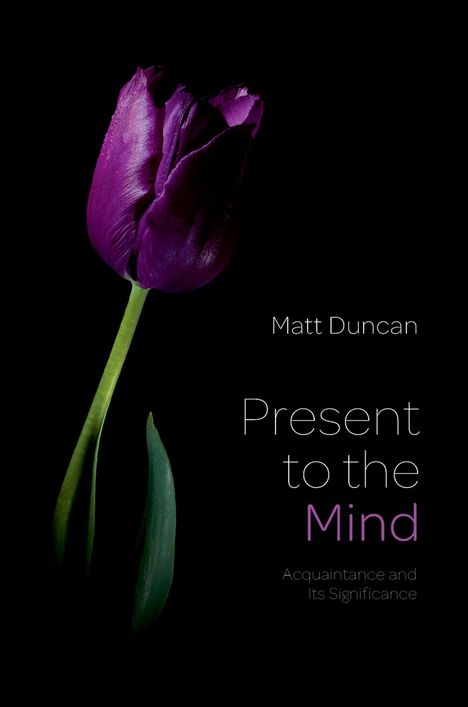Matt Duncan: Present to the Mind, Gebunden
Present to the Mind
- Acquaintance and Its Significance
Sie können den Titel schon jetzt bestellen. Versand an Sie erfolgt gleich nach Verfügbarkeit.
- Verlag:
- Oxford University Press, 04/2026
- Einband:
- Gebunden
- Sprache:
- Englisch
- ISBN-13:
- 9780197844120
- Artikelnummer:
- 12551194
- Umfang:
- 352 Seiten
- Erscheinungstermin:
- 7.4.2026
- Hinweis
-
Achtung: Artikel ist nicht in deutscher Sprache!
Klappentext
Present to the Mind offers a rigorous philosophical defense of acquaintance-a form of direct experiential awareness we have of things like sounds, tastes, pains, and perhaps also qualities such as beauty or goodness. Matt Duncan posits three central claims: (i) acquaintance exists, (ii) it constitutes a form of knowledge, and (iii) it plays a foundational role across multiple domains of human life.
The book unfolds in three parts. First, Duncan clarifies the nature of acquaintance, distinguishing it from other epistemic relations and identifying several distinct types that are integral to everyday experience. Second, he defends the thesis that acquaintance is itself a kind of knowledge-non-propositional, yet knowledge nonetheless. Unlike inferential or descriptive knowledge, acquaintance provides immediate access to its object, grounding other forms of knowing. Third, Duncan explores the broader significance of acquaintance across four domains. Epistemically, it underpins empirical knowledge and justifies beliefs both directly and inferentially. Aesthetically, it is essential for appreciation and for acquiring aesthetic knowledge. Emotionally, acquaintance with one's own emotions is necessary for their epistemic and motivational force. Morally, acquaintance shapes and is shaped by moral character, as what one is acquainted with influences-and is influenced by-one's moral character.
Ultimately, Present to the Mindpresents acquaintance as an indispensable mode of access to the world-not only in knowing, but in feeling, valuing, and judging. Duncan's account challenges other views of knowledge and offers a compelling framework for understanding how we engage with the world in its most immediate and meaningful forms.


